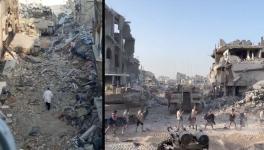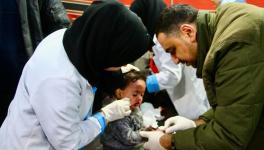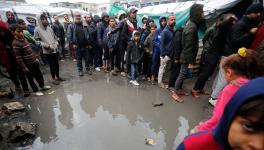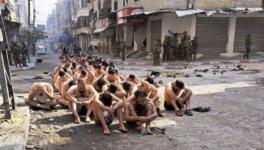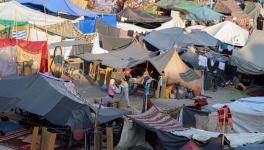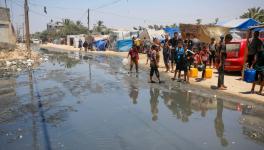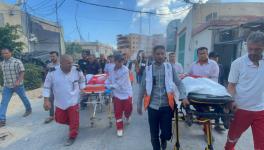Healthcare in the West Bank Under Siege as Gaza Nears Starvation
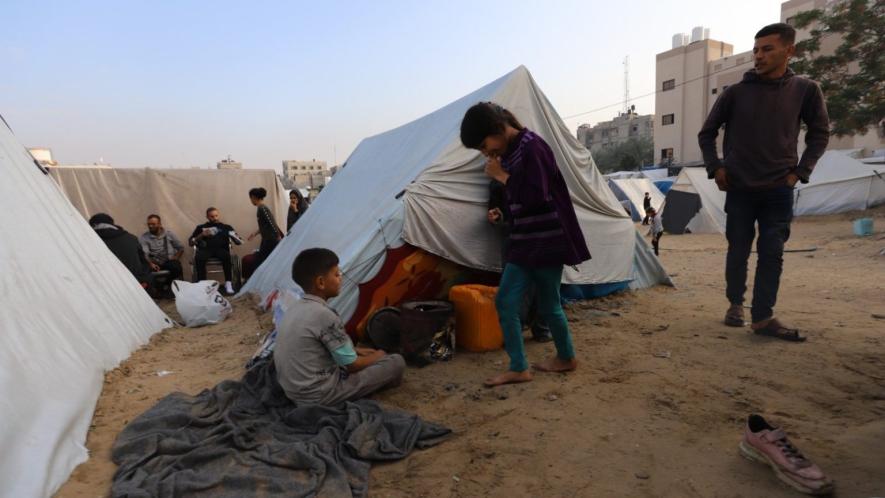
Photo: Tedros Adhanom Ghebreyesus/X
Over 1 million people in the Gaza Strip might face starvation by mid-July, according to new reports by the Food and Agriculture Organization (FAO) and the Integrated Food Security Phase Classification (IPC). The nutritional status of Gaza’s population continues to deteriorate, with children being among the hardest hit: nine out of ten children are currently surviving on two or fewer food groups per day.
A full-fledged famine has not yet been declared, but several health and nutrition experts have warned that people in Gaza are already dying of hunger. “Once a famine is declared, it is too late—many people will have already starved to death,” said Cindy McCain, World Food Program Executive Director, reflecting on the risks brought by hunger in Gaza and other regions ridden by conflict.
Healthcare in the Strip continues to suffer daily attacks by the Israeli Occupying Forces (IOF). Most hospitals in southern Gaza have been put out of operation since Israeli forces increased attacks in the region. The only two hospitals still able to function in Rafah, the ICRC Field Hospital and the UAE Field Hospital, are increasingly difficult to reach.
More to the north, the remaining hospitals are struggling to care for hundreds of victims of Israel’s attacks on refugee camps, schools, and residential areas. In the first week of June, Al-Aqsa hospital was barely coping with the influx of casualties. “It’s a scene of devastation. This hospital is a sinking ship,” said Karin Huster, Doctors Without Borders (MSF) medical representative in Gaza.
The pressure on hospitals is unlikely to decrease as attacks continue and medical evacuations remain blocked. Between May 7 and June 7, there were no health-related evacuations from the Gaza Strip. Before May 7, less than 50% of the evacuation requests were approved, and only 38% of those approved actually took place. The others were not carried out due to security concerns, leaving at least 14,000 people in need of medical evacuation, according to the World Health Organization (WHO).
Blockades imposed on healthcare in the West Bank
Restrictions on movement are also severely impacting healthcare in the West Bank. A recent report on health in the village of Al Walaja, published by Doctors of the World (MdM), highlights how stricter controls over Palestinian movements introduced after October 7 have exacerbated health risks for the villagers.
Al Walaja is a village near Jerusalem and Bethlehem, located in Area C defined by the Oslo Accords, controlled by Israel. Even before October 2023, accessing the village was extremely difficult due to IOF control over the only road leading to Al Walaja. Since October, the road has been closed for most of the week, sometimes allowing travel only once a week.
This situation bars health workers from reaching the village and patients from traveling to other health facilities for laboratory tests or prenatal care. MdM reports that this is forcing women to leave the village before their due dates to avoid complications during childbirth that cannot be managed in Al Walaja’s health facilities.
“Palestinians living in Al Walaja know that in the event of a critical health emergency where their lives hang in the balance, life or death might depend on the decision of the Israeli soldiers to let them pass at the only exit point,” MdM stated in the report.
Patients are also fearful of settlers who have moved across the road from the only primary health center in the village and installed cameras to monitor activities at the clinic. According to MdM, settlers and Israeli soldiers have repeatedly blocked construction work to expand the health center and everyday maintenance, causing the existing building to decay.
Without an end to the occupation and the lifting of all blockades on Palestinian movement within the occupied territories, health in Al Walaja and the rest of the West Bank will remain under threat, MdM warned.
People’s Health Dispatch is a fortnightly bulletin published by the People’s Health Movement and Peoples Dispatch. For more articles and to subscribe to People’s Health Dispatch, click here.
Get the latest reports & analysis with people's perspective on Protests, movements & deep analytical videos, discussions of the current affairs in your Telegram app. Subscribe to NewsClick's Telegram channel & get Real-Time updates on stories, as they get published on our website.









